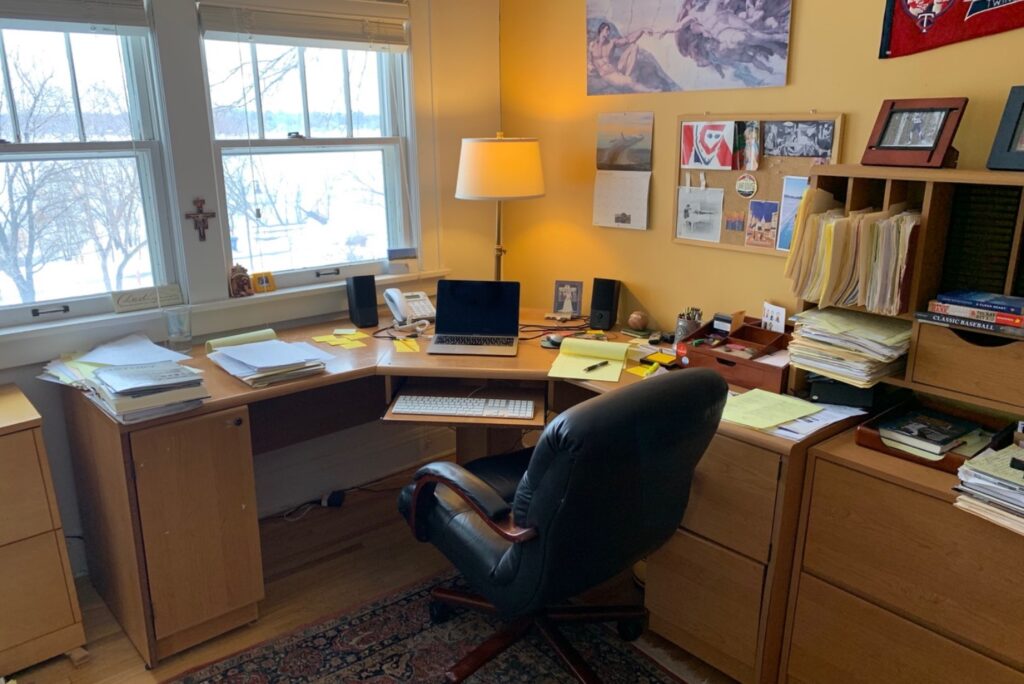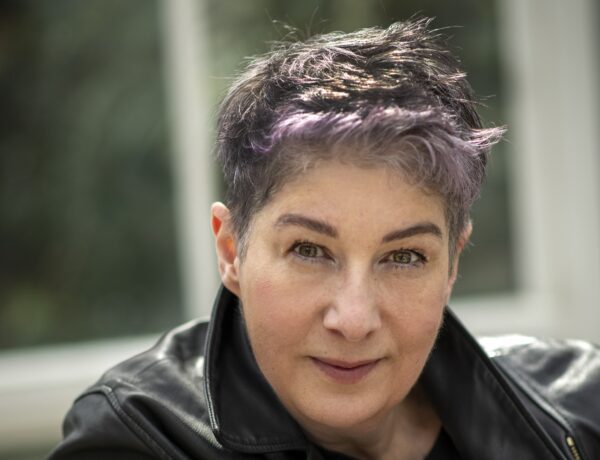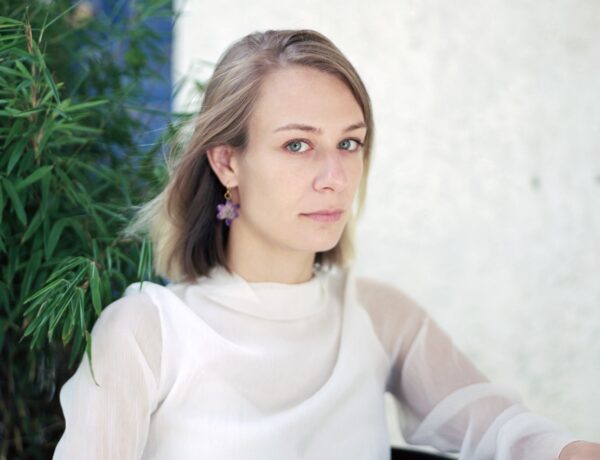John Rosengren is an American writer and author known for his feature articles, profiles, and essays. He has contributed to over 100 publications, including well-known names like The Atlantic, GQ, The New Yorker, and Sports Illustrated.
He has authored ten books, including biographies, non-fiction sports books, fiction novels and an autobiography. His work has earned him numerous awards and recognition, including the 2017 Donald Robinson Award for Investigative Journalism for his Atlantic exposé on gambling addiction.
With a master’s degree in creative writing from Boston University and a bachelor’s from the University of Saint John’s, he is also a teacher at the University of Minnesota’s journalism school. John is a member of several professional organizations such as the American Society of Journalists and Authors, Biographers International Organization, the Hemingway Society and the Society for American Baseball Research.
Each week, we publish a new daily writing routine from a famous author. Subscribe to our newsletter so you don’t miss out!
Hi John! We’re delighted to have you as a guest on Famous Writing Routines. For our readers who may not be familiar with your work, could you please give us a brief introduction to yourself?
I’m a freelance writer based in Minneapolis. I have written ten books and articles for the Atlantic, GQ, the New Yorker, Sports Illustrated, and the Washington Post Magazine, among others.
Can you tell us more about your experience freelancing as a senior in high school and how that led to your career as a writer?
After I quit smoking pot at 17, I needed a new identity and found it in writing. My high school journalism teacher supported me in my sobriety and encouraged me to start freelancing. I began by writing articles for the local newspaper, the Wayzata Weekly News, and discovered I liked researching and telling stories about the community.
How has being published in a variety of magazines, such as The Atavist, The Atlantic, and The New Yorker, influenced your writing style?
As a freelancer, I’ve worked with a variety of editors, so I’ve had the chance to learn from them a lot of lessons about writing and storytelling, from the sentence level to the structural level. Sometimes I don’t agree with their suggestions and push back. Others I see the wisdom in their suggestions and am grateful that they’re able to make me look like a better writer.
Can you talk about the process of having one of your articles, “The Pretender,” turned into a three-part HBO documentary?
I haven’t seen the documentary yet. I hear it will probably air in the fall. I’m curious to see how the director, Erin Carr, who is very talented, tells the story.
Discover the daily writing habits of authors like Stephen King, Neil Gaiman, and Gillian Flynn with Famous Writing Routines Vol. 1 and learn how to take your writing to the next level. Grab your copy today!
You’ve been nominated for a National Magazine Award and Pulitzer Prize. How has that recognition affected your writing and career?
I should point out, it’s a long way from being nominated for an award to actually winning it. Sometimes people mistakenly think I won one of those awards instead of simply being nominated for them, and they’re impressed, ready to give me any assignment I ask. But when they understand I was only nominated, they still show a measure of respect that gives me some credibility and they’re at least willing to hear my pitch for an article idea.
Can you describe your writing routine and how you approach the creative process? What does a typical writing day look like?
I write best in the mornings, so I try to protect that time and not schedule interviews or meetings then. But I don’t get up and sit down at my desk right away. I have breakfast, drink my coffee, walk the dogs, meditate, write in my journal, then finally get down to work. I suppose the morning routine is a bit of procrastination, but it often results in me showing up to my desk with some ideas already percolating.
When I’m stuck, I find it helpful to do something physical that frees my mind, e.g., going for a bike ride or skiing (cross country), depending on the season; mowing the lawn or shoveling snow, again, of course, depending on the season; even doing the dishes. I tend to keep rather regular business hours and don’t like to work in the evenings or on the weekends. That’s family time.
Can you talk about a particularly challenging piece of writing you have worked on and how you overcame any obstacles during the process?
I started a novel 30 years ago. I finished a draft in the first person but decided it would work better in the third person, so I rewrote it. After several more revisions, I sent it out to publishers and agents. Nobody was interested, so I set it aside. About five years later, I went back to the novel, revised it, and sent it out again. Nothing. So I set it aside again. I repeated this process three or four times.
Finally, I figured it was the clichéd novel destined for a desk drawer. But after completing another novel and sending it out, I dusted off the first one, revised it one more time and sent it out, too. That was the one that landed a publisher. Mango Press published A Clean Heart in 2020. I think that each time I revised it, the story got stronger, especially as I took out pieces I realized didn’t contribute to the storyline.
How do you balance the creative and business aspects of being a freelance writer?
I actually like the business side, from the hustle of pitching ideas to negotiating contracts. As I mentioned before, since I’m most creative in the mornings, I try to write then and work on the business stuff in the afternoons.
What does your writing workspace look like?
I look out over Lake Harriet, one of Minneapolis’ 22 lakes within the city limits. Can be distracting on a nice day, when I’d rather be out there than at my desk.

Affiliate disclaimer: Some links on this website are affiliate links. We may earn a small commission if you make a purchase through these links, but only promote products we truly believe in. We disclose affiliate links and give honest reviews.



2 Comments
Ed Krass
February 7, 2023 at 06:17Met John a few years ago when he was in West Bloomfield, Michigan promoting his book on Hank Greenberg. We had a very nice discussion on his writing and background. He signed my book on Hank! I thoroughly enjoyed his writing and his deep background of the life of Hank Greenberg.
The book is now in possession of one of my grandsons who is a sports podcaster.
Jim Dwyer
February 15, 2023 at 12:22Great to read that the writing business isn’t about perfection; it’s about persistence. Yes, revisions and revisions and revisions…and then trying that one last time when others might quit can made a huge difference.
Glad John stuck with his novel, and all his other books and articles for that matter
Looking forward to the next one.